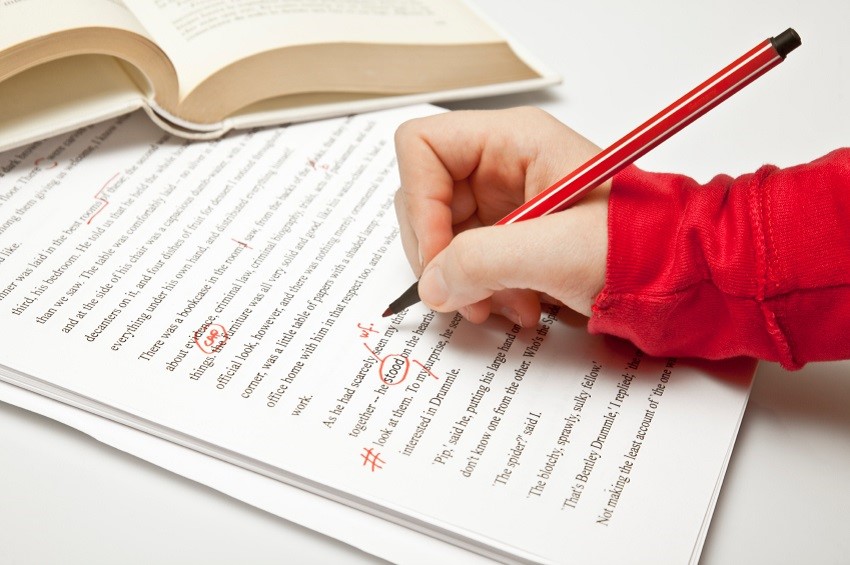
How To Get Happily Published – Finding a Publisher
“Nobody buys unsolicited manuscripts” is what they’ll tell you at every literary lunch and party you attend — or hope to attend. They’re all wrong. A good query will get you to read at most houses — even by the eminent publisher at an eminent New York firm who told a first-time author, “For the record, we are generally unable to review unagented material.”
“However,” he went on to say, “I am intrigued enough” to ask for your proposal.
Editors need manuscripts. They need a new list every season. They need you. But they also need you to approach them in a particular way. And yes, Virginia, you can get offers without an agent.
Write a query that gets results
Any pieces of paper you send editors–from three-paragraph queries to thirty-page proposals–will persuade them either to move your manuscript one stage closer to publication or to reject it right then, depending on whether they’ve been led to answer yes or no to the two all-important questions that echo in editors’ heads:
- Will this book, if it’s skillfully handled, add to my company’s prestige and/or profits (and therefore to mine as well)?
- Can this writer handle it skillfully?
Every query has two important tasks to accomplish. First, it must sell your idea to the editor it’s addressed to, and, second, it must help that editor sell it to colleagues, who–it’s necessary to remember–will be asked and can say No.
The query checklist
The checklist that follows outlines the elements of a good query letter about a nonfiction manuscript; if you adapt them creatively, they’ll serve for fiction as well.
- Explain why you believe each editor you’re addressing will be interested in the work you’re offering (because they’ve edited material on similar subjects or material displaying similar sensibilities; because they come from areas where your story is set; because you’ve discovered they share your interest in or indignation about or passion for whatever your topic maybe). This portion of the query, which is usually the first sentence, must obviously be different for every editor you approach.
- State your specific idea (as opposed to your general subject). In addition to a catchy title and a subtitle that conveys the substance of your book, a “tagline” that expresses its appeal will be useful here. To create an effective tagline, look to book cover copy for inspiration and then focus firmly on the benefits your work offers readers. More than any other element of the query, the tagline can help interested editors convince marketing colleagues of the project’s merits (eventually, it will also help the marketers sell it to wholesalers, retailers, media people, and the public)
- Describe the main point your manuscript makes, the ground it covers, and its style, with specifics by way of illustration.
- Mention your relevant credentials and connections — professional expertise and achievements, publishing credits, mutual friends, mentors, and acquaintances — whatever makes you more of a known quantity and more credible in terms of the promotion will be helpful. Even beginners should be able to cite some relevant achievements.
- Say where and how you got (or are getting) your raw material (from interviews? primary sources? personal experience? laboratory experiments? exhaustive research?).
- Show how what you have to say is fresh and different from specific books already in print (hit the highlights here–you have information such-and-such an author didn’t reveal; you hook your findings to a narrative instead of presenting them in the scholarly format of such-and-such a book).
- Estimate length. A word count that’s appropriate to your topic and to the publishing concern you’re writing forgives an editor a clue that you do your homework.
- Provide a tentative delivery date for your manuscript.
- Convey your enthusiasm for the project. Enthusiasm is infectious, which is lucky because it’s also essential. “I wouldn’t buy a book I was lukewarm about,” says a VP and Senior Editor at Simon & Schuster; “More than ever, enthusiasm is a necessary prerequisite for acquisition.” If the editor isn’t passionate about a book, the sales force isn’t likely to get behind it.
In essence, what you’re asking when you send a query to a book editor is, Will you look at my book proposal?
It then becomes the book proposal’s job to give editors the information they need to answer the harder question, Will you buy this book or at least ask to read it?
Editors routinely bid for nonfiction books on the strength of proposals alone — including (to be sure the point sinks in) proposals from writers who don’t have agents.





